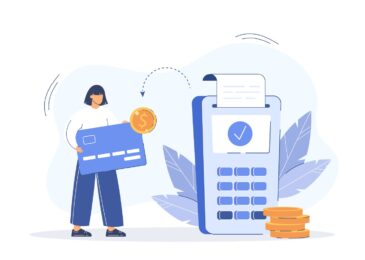What Are Top 10 FAQ’s about Employee Time Tracking Software?
What Are Top 10 FAQ’s about Employee Time Tracking Software?
Employee time tracking software has been the vogue of late. Not only are more and more employers starting to realize how beneficial it can be to productivity, but it is also an invaluable tool to manage remote workers.
But as much as the popularity of this type of software has skyrocketed, many people still have lots of questions about it.
Let us have a look at what are the top 10 FAQ’s about employee time tracking software out there – and learn what the answers to them are.
Also Read – What Is Help Desk Software? Where is Help Desk Software Used For?
1. What is time tracking software?
As its name suggests, time tracking software is a type of software that allows employers to monitor and measure the time that employees are spending on various activities while on their computers. It can encompass several metrics, including attendance, active or idle time, applications that are used, websites that are visited, files that are accessed, and much more.
It should be noted that there are many types of time tracking software out there with many different features.
2. Why is time tracking software better than conventional methods of time tracking?
Conventional methods of time tracking such as manual timesheets and swipe cards have been used for some time – but time tracking software is far more advanced. Not only is it automated and precise, but it can also capture more detailed and comprehensive data regarding the activities of employees.
3. How easy is it to use?
Generally time tracking software are designed to be user-friendly and intuitive. However it may take a bit of time to set it up and customize the tracking, reporting, and other aspects of the software.
Some software such as Controlio have a reputation for being user-friendly and intuitive. In fact, if you have any doubts you can use Controlio’s free trial to see firsthand how easy it is to use.
4. What benefits can time tracking software provide?
To be honest, time tracking software can provide numerous benefits and some of the most notable are:
- Identify time wastage or inefficiencies by analyzing the activity of employees.
- Uncover negative trends that could affect productivity.
- Monitor remote workers easily and make sure they are working properly.
- Improve security by monitoring access to sensitive information, file transfers, and so on.
- Make smarter business decisions by having hard data regarding the activity and productivity of employees.
Frankly that is just the tip of the iceberg. Simply put, time tracking software can give you the means to gather invaluable and actionable data about your employees and the tasks they’re performing.
5. What type of time tracking software is best?
While there are many different types of time tracking software, it is difficult to describe any one of them as ‘best’. Instead you should consider multiple factors such as the features, data security, updates, costs, and expertise required.
A good place to start would be to decide whether you are looking for an on-premises software or cloud-based monitoring solution like Controlio. The advantage of the latter is that it can be accessed from anywhere and is scalable to meet the needs of both small businesses and enterprises.
6. What features are required?
The features that you require will vary depending on your business goals, the type of business you run, and how you want to monitor your employees. In some cases you may just need something simple to track attendance, log-in and log-out times, or overtime.
However in other cases you may want a more robust solution like Controlio that can do far more than that. It can generate a productivity score for individual users, watch user desktops live, capture screen recording videos, track app and web activity, and filter unwanted websites.
7. How flexible is the software?
Because time tracking software is automated, it has a great deal of versatility. It can track employees that are on-premises or working remotely, and who work normal work hours or have different schedules.
Long story short, time tracking software should be flexible enough to cater to the requirements of any business – large or small.
8. How will data be stored?
Different time tracking software will store the data that is collected differently. On-premise solutions may encrypt and store the data locally, while cloud-based software will normally store it on a secure cloud platform.
The software may provide other options to back-up data, synchronize it, or deliver the data in the form of reports.
9. Is it intrusive?
To be perfectly honest, time tracking software can be intrusive – but it all depends on how you use it. For example with Controlio you have potentially intrusive features that can block social media or log keystrokes, but you don’t necessarily have to use them.
At the end of the day you should set up the time tracking software that you use so that it only collects data that is work-related – and avoids tracking personal information.
10. Is it legal?
The legality of time tracking software is often debated, but the short answer to this question is: Yes, it is legal to track employees at work using time tracking software. That being said, before you roll out the software you should check whether there are any regulations regarding its use in your jurisdiction that need to be followed.
For example, some jurisdictions may require companies publish a clear and open policy and ensure that steps are taken to protect the privacy of their employees.
Conclusion –
Hopefully by this point most of your questions about time tracking software have been cleared up. If you have any others, it may help to look for a specific time tracking or employee engagement software that you’re interested in, and query them about it.
Make no mistake, time tracking software is a game-changer and it can have a profound impact on your business. If you aren’t already sold it would definitely be worth finding out more about it and what it can do for you.
Also Read – Why Businesses Should Invest in Learning Management Software?




